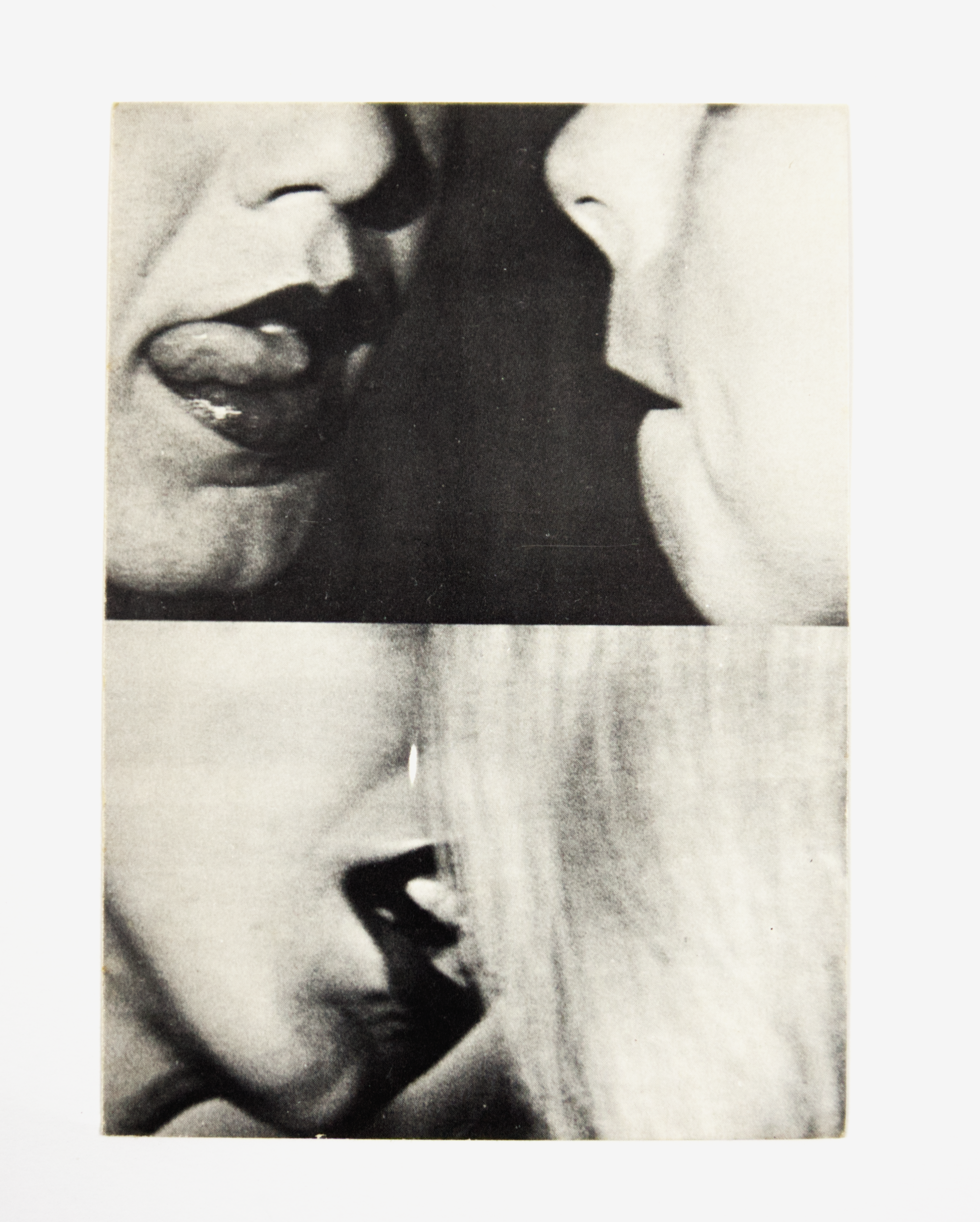 Image 1 of 8
Image 1 of 8

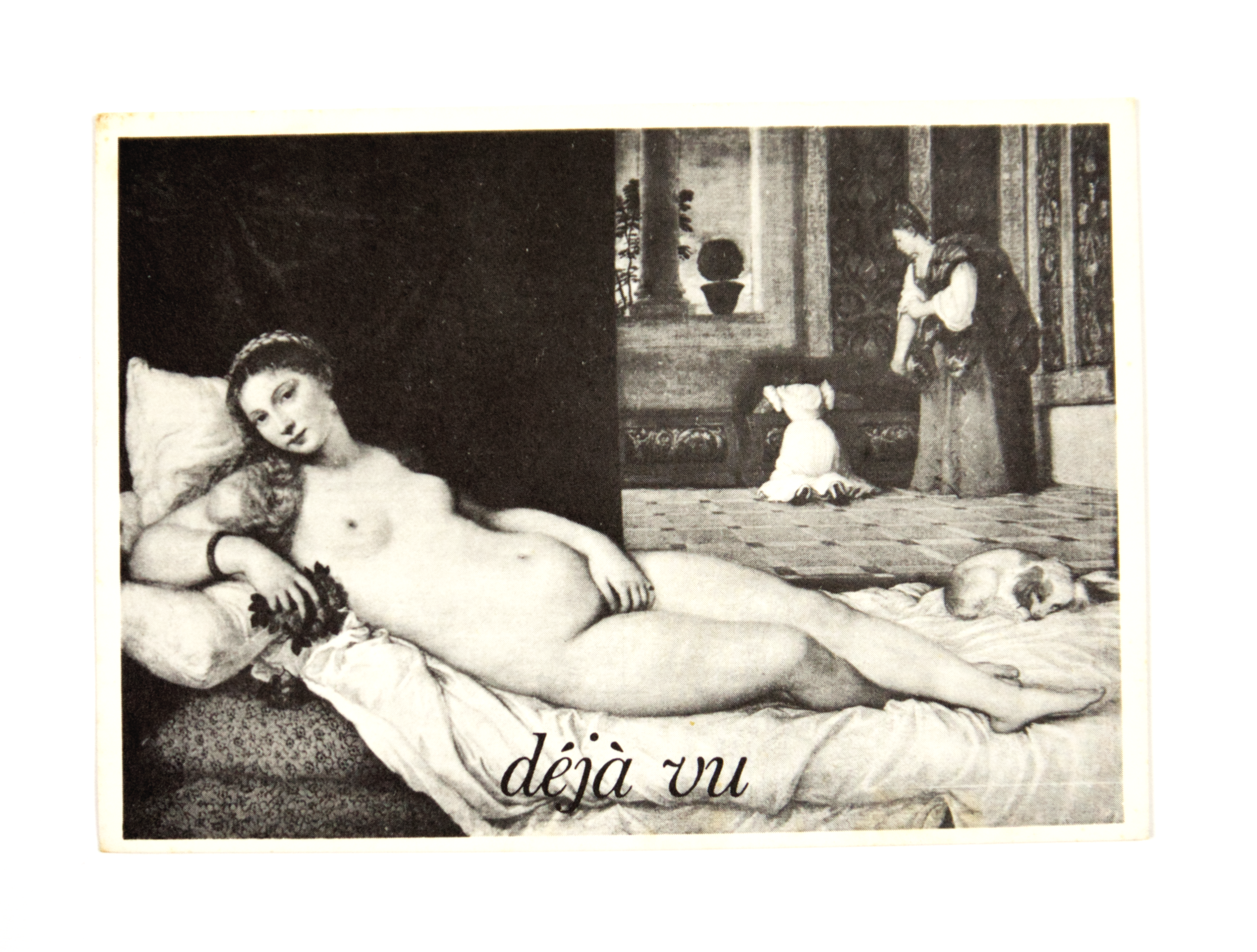 Image 2 of 8
Image 2 of 8

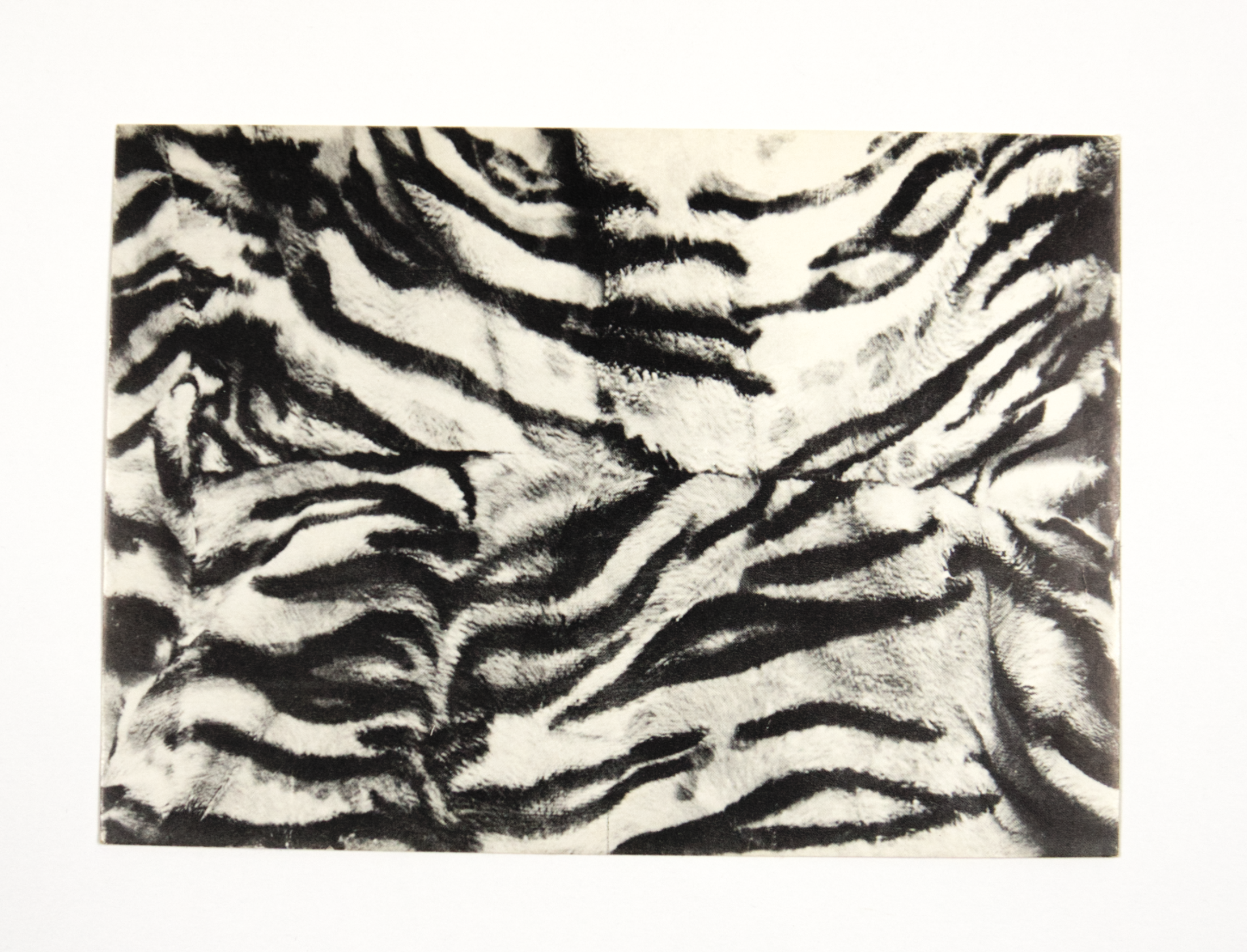 Image 3 of 8
Image 3 of 8

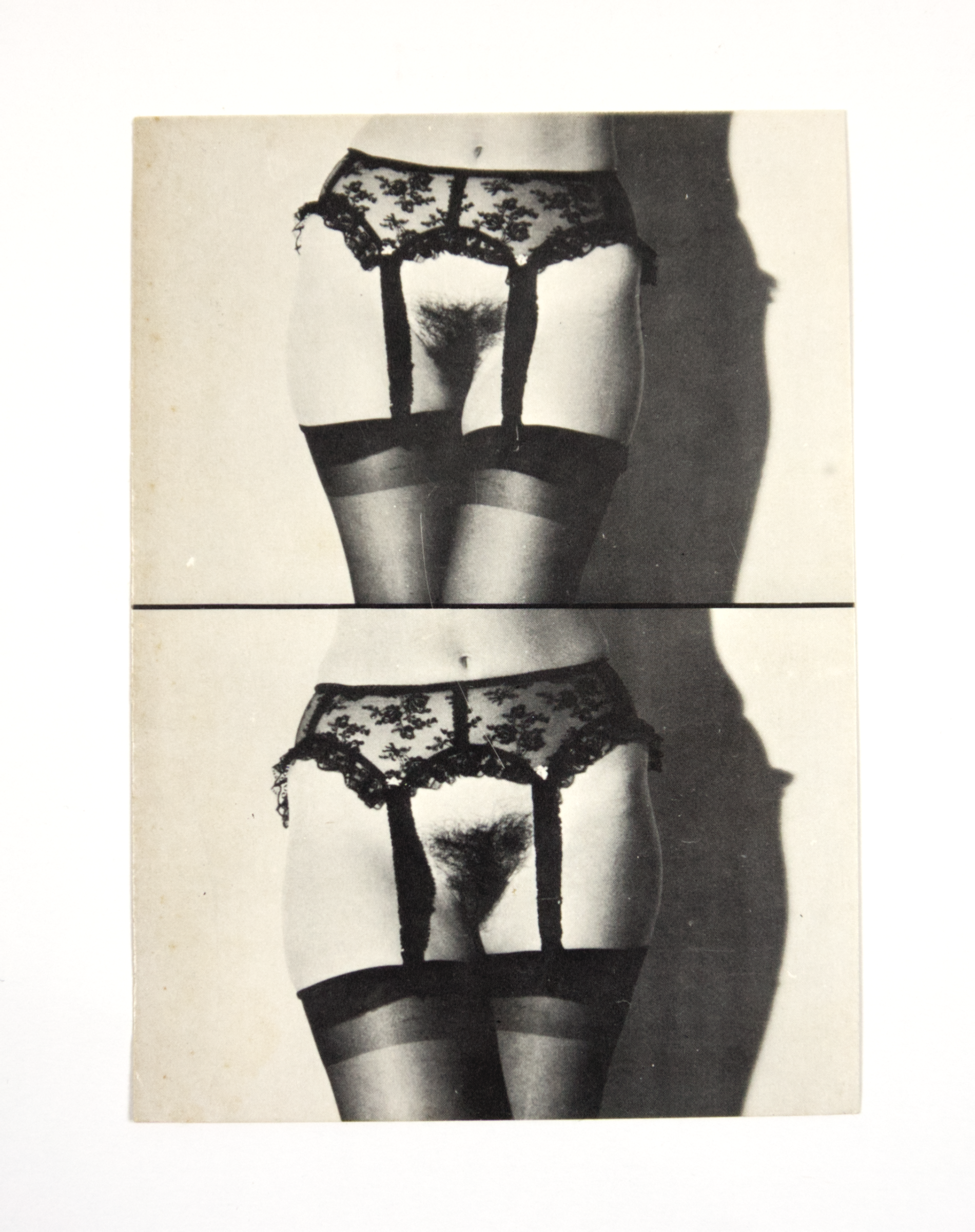 Image 4 of 8
Image 4 of 8

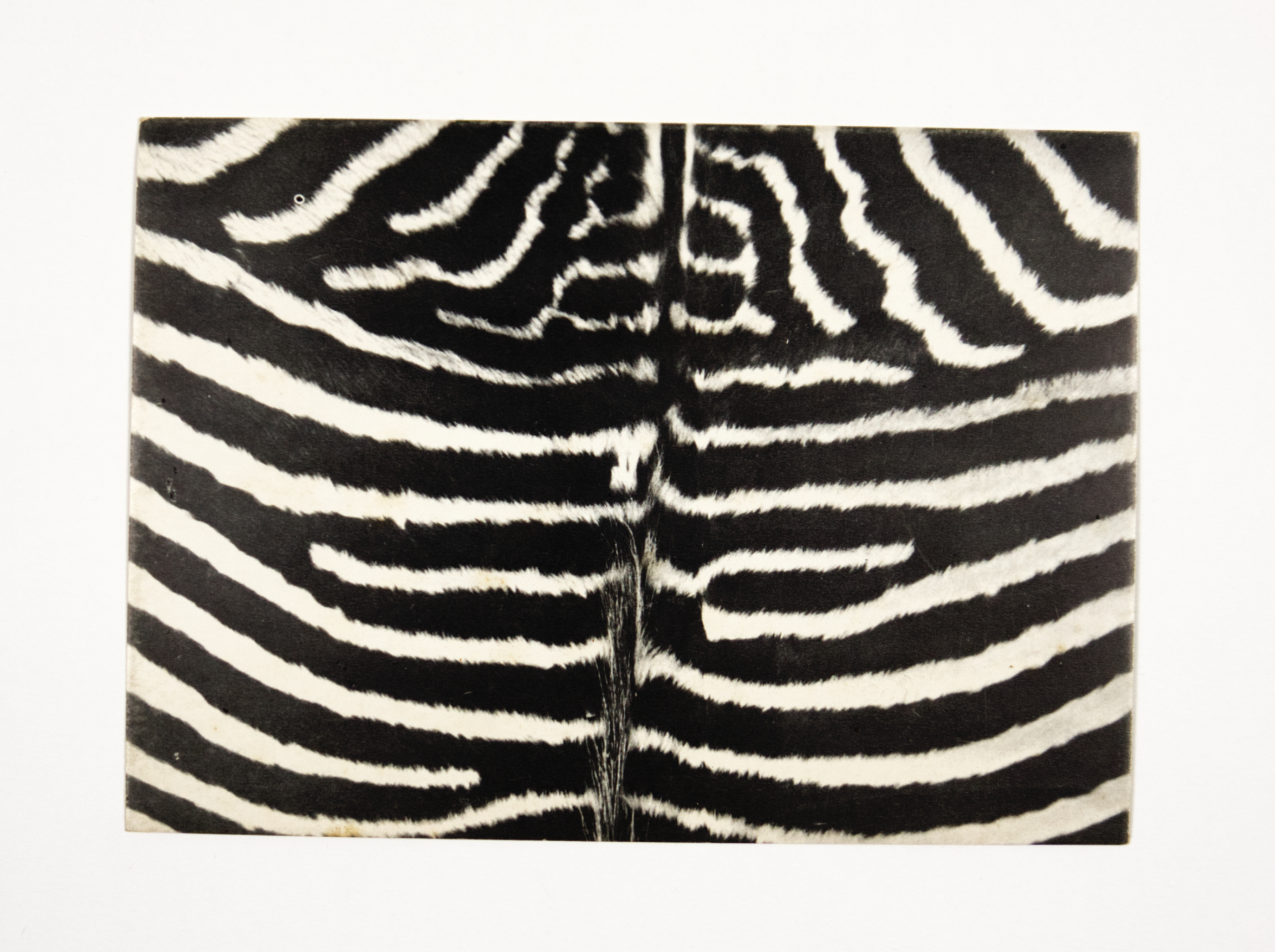 Image 5 of 8
Image 5 of 8

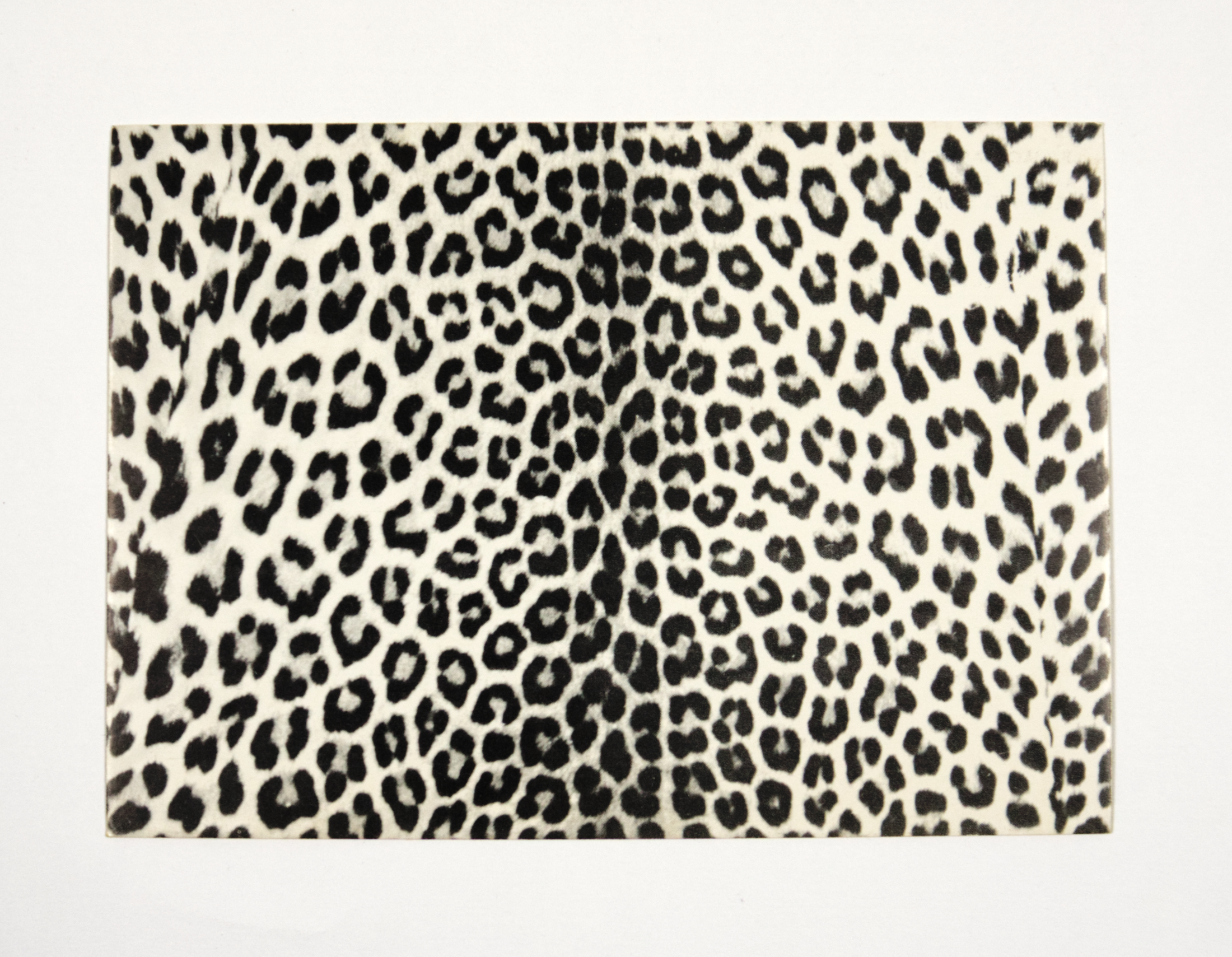 Image 6 of 8
Image 6 of 8

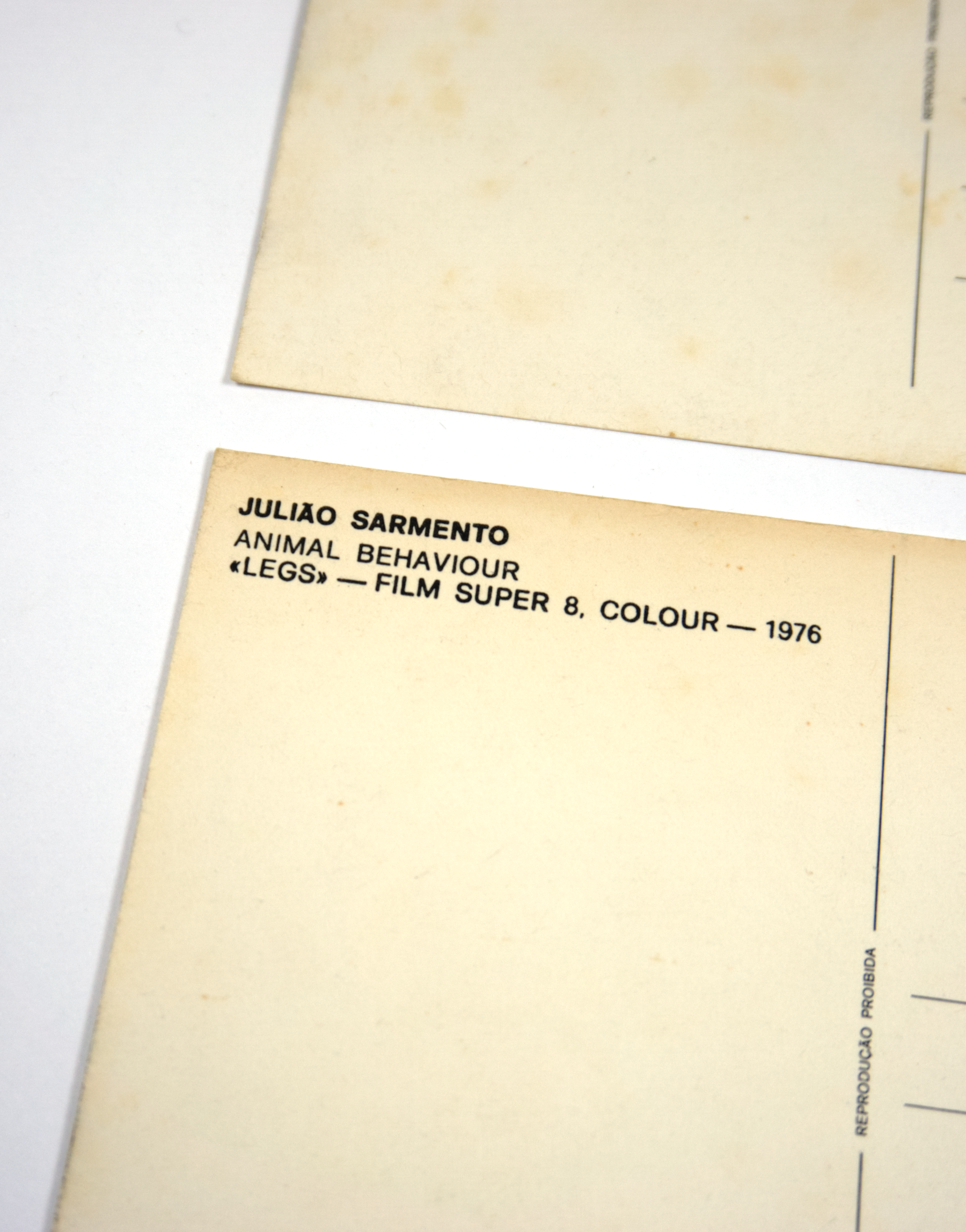 Image 7 of 8
Image 7 of 8

 Image 8 of 8
Image 8 of 8









Julião Sarmento: Animal Behaviour / Animal Research / Déjà vu (1970's)
6 limited edition postcards
Publisher: Julião Sarmento / Erika + Otto Friedrich
Artist: Julião Sarmento (1948-2021)
Title: Animal Behaviour / Animal Research / Déjà vu
Publication date: 1970's
Dimensions: 15 x 10,5 cm (5,91 x 4.13 in.)About
Animal Behaviour - Faces 1976; Legs 1976
Animal Research - Leopard Skin 1975; Zebra Skin 1975; Fake Tiger Skin 1975
Déjà vu 1979
A set of 6 postcards that bring us closer to the idea of desire in the work of Julião Sarmento. Eroticism vibrates in the unspoken, in the almost-touch, on the skin that is both boundary and promise. Sometimes, that skin is human; other times, it is animal — raw, instinctive, archaic. To look at these images is to accept losing one’s center, and to remain within the tension between what is revealed and what is withheld.
“If in some works the question of Desire is so evident that it becomes abstract (as in a pornographic image), in others it remains hidden. Desire is embodied in the desire for the feminine and in the affirmation of the omnipresence and omniscience of sexuality in general, through either evidence or shared metaphors (such as animal skin)…”
(João Pinharanda, Público, 2002)
Julião Sarmento (1948-2021)
Julião Sarmento was a prominent Portuguese artist known for his multidisciplinary approach, blending painting, drawing, photography, film, sculpture, and installation. His work often explored themes of desire, voyeurism, and the human body, frequently juxtaposing fragments of images with abstract forms to evoke ambiguity and psychological tension. Sarmento's art was influenced by literature, cinema, and architecture, with a minimalist aesthetic that often engaged with sensuality and narratives of intimacy. Throughout his career, he gained international recognition, exhibiting in major institutions and representing Portugal at the Venice Biennale in 1997.
Condition: Good overall condition (Integrity and authenticity). Signs of age and wear.
Provenance: Acquired private collection (Portugal). Ownership: Monginho Collection.
6 limited edition postcards
Publisher: Julião Sarmento / Erika + Otto Friedrich
Artist: Julião Sarmento (1948-2021)
Title: Animal Behaviour / Animal Research / Déjà vu
Publication date: 1970's
Dimensions: 15 x 10,5 cm (5,91 x 4.13 in.)About
Animal Behaviour - Faces 1976; Legs 1976
Animal Research - Leopard Skin 1975; Zebra Skin 1975; Fake Tiger Skin 1975
Déjà vu 1979
A set of 6 postcards that bring us closer to the idea of desire in the work of Julião Sarmento. Eroticism vibrates in the unspoken, in the almost-touch, on the skin that is both boundary and promise. Sometimes, that skin is human; other times, it is animal — raw, instinctive, archaic. To look at these images is to accept losing one’s center, and to remain within the tension between what is revealed and what is withheld.
“If in some works the question of Desire is so evident that it becomes abstract (as in a pornographic image), in others it remains hidden. Desire is embodied in the desire for the feminine and in the affirmation of the omnipresence and omniscience of sexuality in general, through either evidence or shared metaphors (such as animal skin)…”
(João Pinharanda, Público, 2002)
Julião Sarmento (1948-2021)
Julião Sarmento was a prominent Portuguese artist known for his multidisciplinary approach, blending painting, drawing, photography, film, sculpture, and installation. His work often explored themes of desire, voyeurism, and the human body, frequently juxtaposing fragments of images with abstract forms to evoke ambiguity and psychological tension. Sarmento's art was influenced by literature, cinema, and architecture, with a minimalist aesthetic that often engaged with sensuality and narratives of intimacy. Throughout his career, he gained international recognition, exhibiting in major institutions and representing Portugal at the Venice Biennale in 1997.
Condition: Good overall condition (Integrity and authenticity). Signs of age and wear.
Provenance: Acquired private collection (Portugal). Ownership: Monginho Collection.

